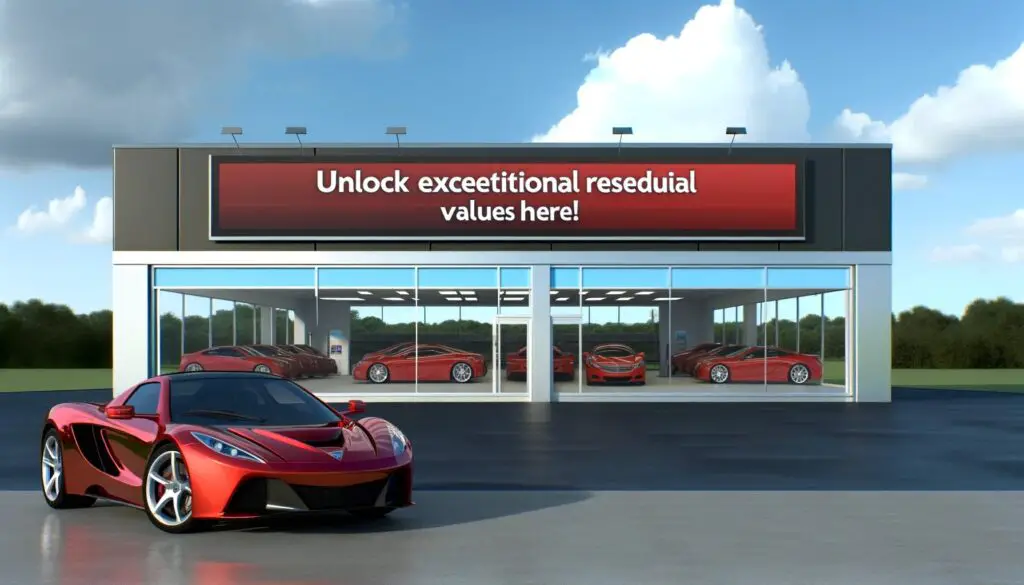Introduction: A smooth driving experience is crucial for comfort and safety on the road. However, many car owners encounter a common issue of experiencing vibrations or shaking when accelerating. In this comprehensive guide, we will delve into the underlying causes of why your car shakes during acceleration but not when coasting. By addressing these reasons, we aim to provide you with valuable insights and solutions to ensure a smoother and more enjoyable driving experience.
Understanding Acceleration and Shaking
To comprehend the reasons behind the shaking phenomenon, it is essential to grasp the basics of a car’s movement during acceleration. When you press the accelerator pedal, the engine generates power that is transmitted to the wheels. Several factors can affect smooth acceleration, and any compromise in these factors can result in vibrations or shaking.
Engine Performance and its Impact
Engine performance plays a pivotal role in the acceleration process. If there are underlying issues with the engine, it can lead to shaking during acceleration. Let’s explore some potential mechanical reasons for this problem:
1. Worn-out Spark Plugs
Spark plugs are responsible for igniting the air-fuel mixture in the engine cylinders. Over time, these plugs can wear out, leading to inconsistent combustion and engine misfires. Worn-out spark plugs prevent the engine from generating sufficient power during acceleration, causing noticeable vibrations.
2. Faulty Ignition Coils
Ignition coils are essential components that provide the necessary spark for proper combustion. When one or more ignition coils malfunction, it can lead to uneven engine performance and subsequent shaking during acceleration.
3. Dirty Fuel Injectors
Fuel injectors are responsible for delivering fuel into the engine cylinders. However, when these injectors become dirty or clogged, the fuel spray pattern may be disrupted, resulting in an improper air-fuel mixture. This can lead to reduced engine power and noticeable vibrations when accelerating.
4. Malfunctioning Mass Airflow Sensor (MAF)
The Mass Airflow Sensor measures the amount of air entering the engine, determining the optimal fuel-to-air ratio. If the MAF sensor is faulty or contaminated, it may provide incorrect readings, which can negatively impact engine performance and cause shaking during acceleration.
5. Failing Oxygen Sensor
Oxygen sensors monitor the oxygen level in the exhaust gases to ensure efficient fuel combustion. When an oxygen sensor fails, it can cause the engine to run rich or lean, affecting overall performance and leading to vibrations during acceleration.
6. Clogged or Dirty Air Filters
Air filters act as barriers, preventing dirt, dust, and debris from entering the engine. Over time, these filters can become clogged or dirty, restricting airflow and reducing engine efficiency. This restriction can result in shaking during acceleration.
7. Damaged or Worn-out Engine Mounts
Engine mounts are designed to reduce vibrations and absorb engine movement. However, when these mounts are damaged or worn out, excessive engine movement can occur, leading to noticeable shaking when accelerating.
8. Problems with the Driveshaft
The driveshaft is responsible for transferring power from the transmission to the wheels. If the driveshaft becomes damaged or unbalanced, it can cause vibrations that are felt during acceleration.
9. Imbalanced or Damaged Wheels
Imbalanced or damaged wheels can cause the car to vibrate at certain speeds, especially during acceleration. Proper wheel balancing and regular maintenance are crucial for a smooth driving experience.
10. Uneven Tire Wear or Tire Problems
Uneven tire wear or tire-related issues, such as bulges or flat spots, can lead to vibrations during acceleration. Regular tire maintenance, including proper inflation and alignment, is essential to prevent such issues.
Other Contributing Factors
While mechanical issues are often the primary culprits behind shaking during acceleration, it is important to consider other contributing factors that can exacerbate the problem. Road conditions, tire pressure, and weather conditions can all influence the smoothness of your driving experience.
Frequently Asked Questions (FAQs):
Why does my car shake when I accelerate but not when I coast?
Shaking during acceleration is often caused by mechanical issues that affect engine performance, such as worn-out spark plugs, faulty ignition coils, or dirty fuel injectors. When coasting, the engine’s power demand is minimal, reducing the noticeable shaking.
Is it safe to drive a car that shakes during acceleration?
While occasional vibrations may not indicate a severe problem, persistent shaking during acceleration should be addressed promptly. Continuing to drive with unresolved issues can potentially lead to further damage and compromise your safety.
Can bad fuel quality cause my car to shake?
Poor-quality fuel can contribute to engine issues and affect performance, potentially resulting in shaking during acceleration. It is recommended to use high-quality fuel from reputable sources.
How can I determine if my engine mounts are damaged?
Signs of damaged engine mounts include excessive engine movement, clunking sounds during gear shifts, and increased vibrations throughout the vehicle. A professional inspection is advisable for an accurate diagnosis.
What should I do if my car shakes only at high speeds?
Shaking at high speeds may indicate imbalanced wheels or tire-related issues. Have your wheels balanced and inspected for any damage. Additionally, check for proper tire inflation and alignment.
Are there any DIY fixes for shaking during acceleration?
Some issues, such as replacing spark plugs or air filters, can be addressed by DIY enthusiasts. However, it is recommended to consult a professional mechanic for an accurate diagnosis and repairs, especially for complex problems.
Can a misaligned wheel cause shaking?
Yes, a misaligned wheel can lead to vibrations during acceleration. Proper wheel alignment is necessary to maintain a balanced and smooth driving experience.
How often should I replace my spark plugs?
The replacement interval for spark plugs varies depending on the vehicle and spark plug type. Consult your car’s manufacturer guidelines or your mechanic for the recommended replacement schedule.
Is it necessary to balance my tires regularly?
Yes, regular tire balancing helps ensure an even distribution of weight around the wheels, reducing vibrations and extending tire life. It is recommended to balance your tires when getting them rotated or whenever you notice vibrations.
Can tire alignment issues cause shaking during acceleration?
Yes, improper tire alignment can lead to shaking during acceleration. It is essential to have your tires aligned regularly to maintain optimal handling and prevent premature wear.
Common Symptoms and Signs to Watch Out For
To determine whether your car is experiencing shaking during acceleration, it’s important to be aware of the common symptoms and signs associated with this issue. By recognizing these indicators, you can take appropriate action and seek professional assistance if needed. Here are some signs to watch out for:
- Vibrations or shaking felt primarily in the steering wheel, floor, or seat.
- Unusual noises, such as clunking sounds, during acceleration.
- Loss of power or sluggish acceleration in conjunction with the shaking sensation.
- Excessive engine movement or visible shaking of engine components.
- Uneven tire wear or abnormal tire patterns.
If you notice any of these symptoms, it’s advisable to address the issue promptly to prevent further damage and ensure your safety on the road.
DIY Maintenance Tips for Smooth Acceleration
While some issues require professional expertise to resolve, there are a few maintenance tasks you can perform on your own to promote smooth acceleration. Here are some DIY tips to consider:
1. Regularly Inspect and Clean the Air Filters
Inspect your air filters regularly and clean or replace them as needed. Clean air filters allow for optimal airflow to the engine, improving combustion efficiency and reducing the risk of vibrations during acceleration.
2. Monitor and Maintain Proper Tire Pressure
Check your tire pressure regularly using a reliable pressure gauge. Inflate the tires to the recommended levels specified in your vehicle’s manual. Properly inflated tires provide better traction and reduce the chances of vibrations during acceleration.
3. Perform Routine Fuel System Maintenance
Consider using a fuel system cleaner periodically to keep the fuel injectors clean and free from deposits. This helps maintain proper fuel flow and combustion, minimizing the risk of engine vibrations.
4. Inspect and Replace Worn-out Spark Plugs
Check the condition of your spark plugs and replace them if they appear worn-out or damaged. Fresh spark plugs ensure efficient combustion and minimize engine misfires, leading to smoother acceleration.
Please note that while these DIY tips can be helpful for general maintenance, it’s still recommended to consult a professional mechanic for a thorough inspection and diagnosis if you experience persistent shaking during acceleration.
Professional Inspection and Repair Services
For complex issues or if you’re unsure about performing maintenance tasks on your own, it’s best to consult a professional mechanic. They have the expertise and diagnostic tools necessary to identify and address the root causes of car shaking during acceleration. Here are some professional services they may provide:
1. Engine Diagnostics
A professional mechanic can perform comprehensive engine diagnostics to identify any underlying mechanical issues affecting acceleration. They use specialized tools and equipment to assess the condition of various components and pinpoint the root causes of the shaking.
2. Spark Plug Replacement
If your spark plugs are worn-out or malfunctioning, a mechanic can replace them with new ones. They ensure proper gapping and installation, promoting smooth combustion and reducing vibrations during acceleration.
3. Fuel System Cleaning
Mechanics can perform a thorough fuel system cleaning using professional-grade cleaners. This helps remove deposits from fuel injectors, intake valves, and other components, optimizing fuel flow and reducing the risk of vibrations.
4. Engine Mount Replacement
If your engine mounts are damaged or worn-out, a mechanic can replace them with new ones. This helps stabilize the engine and minimize excessive movement, resulting in smoother acceleration.
5. Wheel Balancing and Alignment
Professional mechanics can perform wheel balancing and alignment services to correct any imbalances or misalignments. Properly balanced and aligned wheels contribute to a smooth driving experience, reducing vibrations during acceleration.
Remember, seeking professional assistance is crucial if you’re uncertain about the root causes of the shaking or if the issue persists despite DIY maintenance attempts.
Conclusion
Experiencing shaking or vibrations during acceleration can be a concerning issue for car owners. By understanding the potential reasons behind this problem, you can take appropriate measures to address them. Regular maintenance, prompt diagnosis of issues, and consulting a professional mechanic when necessary will help ensure a smooth and enjoyable driving experience. Remember, a well-maintained car leads to safer and more comfortable journeys on the road.





